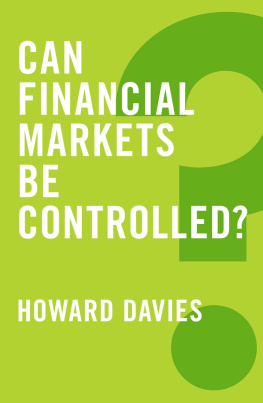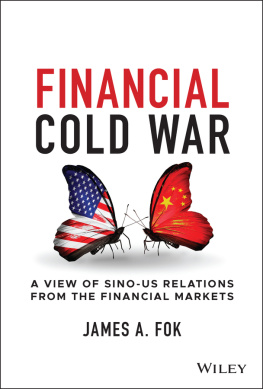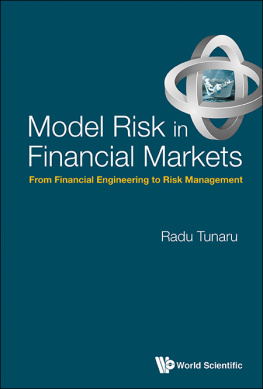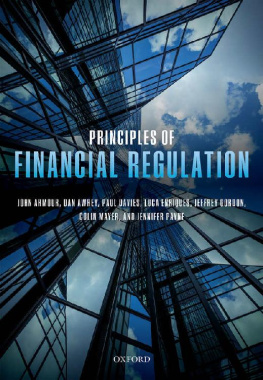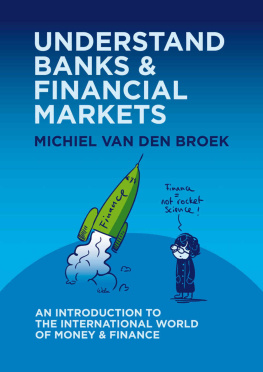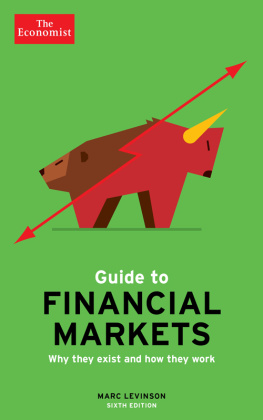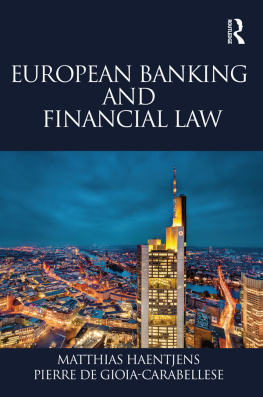Contents
Guide
Pages

Nobody is better placed than Howard Davies to describe the evolution of the financial system during and after the crisis, and to answer the central question of whether financial markets can ever be controlled and future crises prevented.
David Smith, Economics Editor, The Sunday Times
As a former top regulator and as a board member and adviser to large financial institutions, no one is better qualified than Howard Davies to explain the causes of the Global Financial Crisis and assess the reforms that have followed. His short well-written book does both. His conclusion is a sobering one: despite complex and costly reforms, financial regulators have failed to address the structural forces that triggered the crisis.
Laura Tyson, Haas School of Business, University of California, Berkeley
Howard Davies brings three things which are all too rare to studies of the financial world: a complete understanding of how the system works; a healthy scepticism as to the motives and competences of its major actors; and an ability to write with clarity and wit. Read this for a scary analysis of how the tidal wave of reform is not enough to stop things going even more disastrously wrong next time, and what needs be done now to prevent this.
Anthony Hilton, Financial Editor, Evening Standard
Howard Davies has produced an excellent read with an insightful analysis of the pre- and post-crisis world. Clearly and succinctly, the shift in power from the regulated to the regulators is explored. While the book contains many reasons to justify this, the chilling reality is also laid bare, as we now may have created a new equilibrium that is too complex and hence unstable. Perhaps we need not fear as the author also explores many new solutions in the search for a workable social contract between the authorities and the financial markets.
Gerard Lyons, Chief Economic Adviser to the Mayor of London, Boris Johnson
Global Futures Series
Mohammed Ayoob, Will the Middle East Implode?
Christopher Coker, Can War be Eliminated?
Jonathan Fenby, Will China Dominate the 21st Century?
Joseph S. Nye Jr, Is the American Century Over?
Jan Zielonka, Is the EU Doomed?
Can Financial Markets be Controlled?
Howard Davies
polity
Copyright Howard Davies 2015
The right of Howard Davies to be identified as Author of this Work has been asserted in accordance with the UK Copyright, Designs and Patents Act 1988.
First published in 2015 by Polity Press
Polity Press
65 Bridge Street
Cambridge CB2 1UR, UK
Polity Press
350 Main Street
Malden, MA 02148, USA
All rights reserved. Except for the quotation of short passages for the purpose of criticism and review, no part of this publication may be reproduced, stored in a retrieval system, or transmitted, in any form or by any means, electronic, mechanical, photocopying, recording or otherwise, without the prior permission of the publisher.
ISBN-13: 978-0-7456-8834-3
A catalogue record for this book is available from the British Library.
The publisher has used its best endeavours to ensure that the URLs for external websites referred to in this book are correct and active at the time of going to press. However, the publisher has no responsibility for the websites and can make no guarantee that a site will remain live or that the content is or will remain appropriate.
Every effort has been made to trace all copyright holders, but if any have been inadvertently overlooked the publisher will be pleased to include any necessary credits in any subsequent reprint or edition.
For further information on Polity, visit our website: politybooks.com
Prologue
There are surprisingly few recent novels or plays about business and finance; there were far more in the nineteenth century. Events in financial markets need to be dramatic and extreme to displace the normal preoccupations of sex, drugs and rock and roll. The crisis beginning in 2007 managed that unusual feat. Robert Harris put aside the Second World War and the fall of the Roman Empire and wrote a thriller The Fear Index about a hedge fund in Switzerland which makes fabulous sums of money using a fiendish algorithm which eventually consumes its creators. John Lanchesters Capital explored the mysteries of escalating London property prices and the devastation wrought on an investment banking family when the million pound bonuses stopped. At Londons National Theatre, in The Power of Yes, David Hare chronicled the crisis through interviews with participants, punctuated by interventions from a wild-eyed Professor called Howard Davies, as it happens who had moulded the market meltdown into a five-act Shakespearean tragedy.
And Shakespeare indeed provided the most penetrating literary lens through which to view the great crisis of the early twenty-first century. Nicholas Hytners modern-dress production of Timon of Athens, in 2012, again at the National, began with our hero endowing a new art gallery, surrounded by the great and good of the city, fawning on him and hanging on his every word. When his fortunes turn, and profligate philanthropy outruns his income, Timon ends on a rubbish heap, pushing a supermarket trolley loaded with worthless trash, shunned by his former admirers.
So it was with the Masters of the Universe on Wall Street or Lombard Street. When the World Economic Forum was held in New York shortly after 9/11, the Chairman of Lehman Brothers, Dick Fuld, hosted hundreds to dinner at the Four Seasons, with cabaret provided by Elton John. Central bankers and regulators sang along with the bankers and brokers to the chorus of Crocodile Rock. Fred Goodwins Royal Bank of Scotland was lionized by politicians in Edinburgh and London. The banks new Edinburgh HQ was opened by the Queen in 2005, with a fly-past of RAF Tornadoes. In London in 2010, Bob Diamond, then CEO of Barclays, bestrode the city like a colossus, posing with the Mayor at the launch of his Boris bikes, all proudly branded with the banks logo.
Now all three are non-persons: Fuld closeted with his lawyers; Goodwin living in obscurity, his knighthood humiliatingly removed; Diamond seeking redemption (and profit) in Africa. Nor is their experience of humiliation unique. In Zurich, after the crisis hit, a former senior UBS banker arrived at an elegant restaurant with his wife to find the other diners banging on their tables until he left for home, his tail between his legs.
In the years leading up to the collapse of 2007 it was widely believed that financiers had discovered the philosophers stone. Politicians and commentators could not quite understand how the riches were being created, but they were in awe of them nonetheless. Political parties, charities and arts organizations could not get enough of the investment bankers and hedgies. The top students in top universities, whatever their discipline, sent their CVs to Goldman Sachs in astonishing numbers.
Woe betide any regulator who tried to get in the way of this Midas-like wealth-creating engine. In May 2005 Tony Blair characterized the Financial Services Authority (FSA) in London, which had flexed its muscles from time to time, as hugely inhibiting of efficient business by perfectly respectable companies that have never defrauded anyone. In Washington Alan Greenspan, Chairman of the Federal Reserve Board from 1987 to 2006, stood guard against the enthusiasm of market regulators, always challenging their legitimacy in the face of the magic of the market mechanism. If willing buyers were prepared to buy triple A super-senior tranches of synthetic sub-prime CDOs (collateralized debt obligations) from willing sellers, even at infeasible risk-adjusted prices, who were the regulators to ask the reason why?

